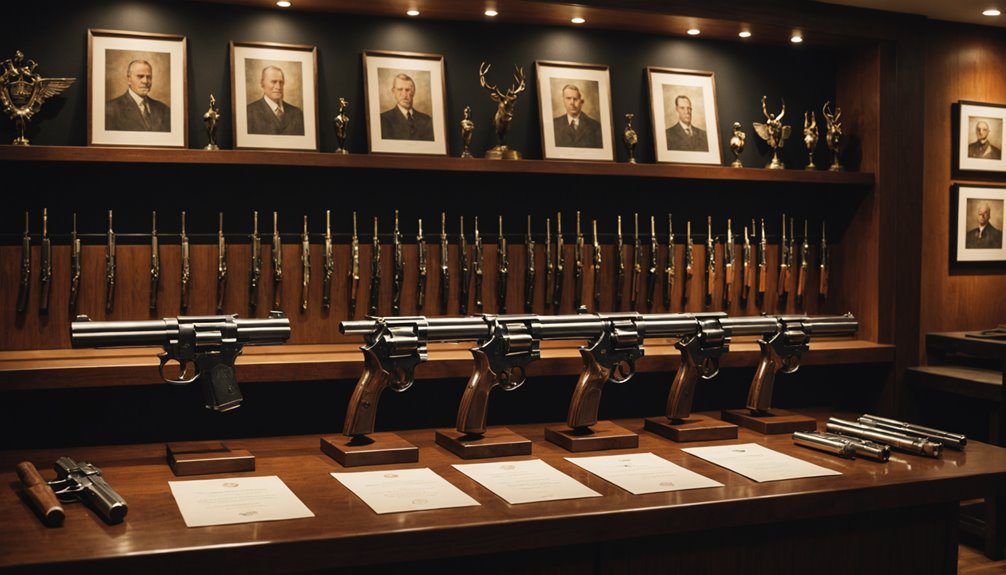If you're considering becoming a retail pistol dealer in South Carolina, you'll quickly discover that obtaining a Retail Pistol Dealer License involves more than just filling out paperwork. You'll need to secure a $10,000 bond, which acts as a financial safety net, ensuring you comply with state regulations and protect consumers. This bond not only enhances your credibility but also plays a pivotal role in your application process. Understanding the intricacies of this bond can significantly impact your journey, so let's explore what you need to know to navigate this essential requirement effectively.
Overview of Retail Pistol Dealer License
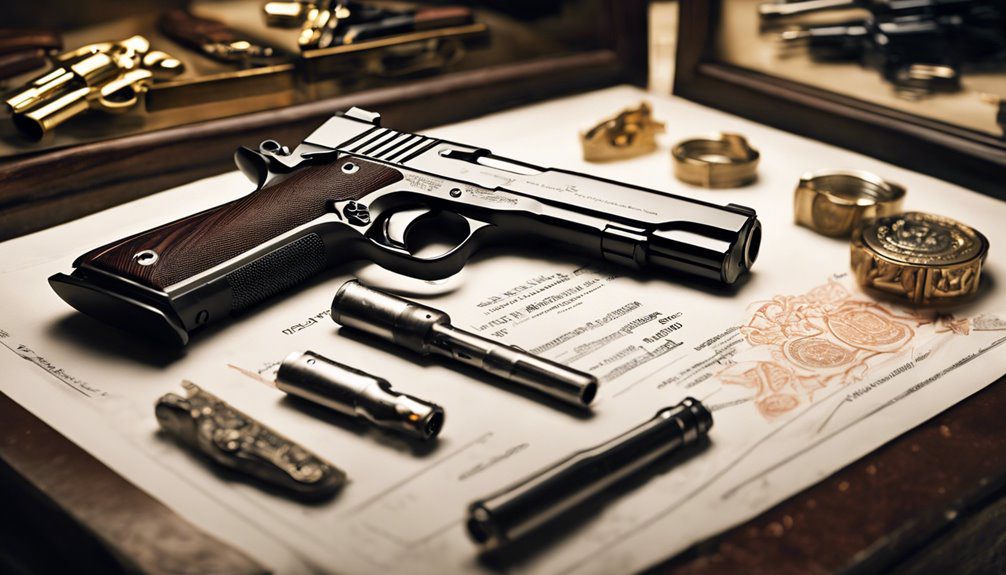
When it comes to selling firearms, having a Retail Pistol Dealer License is essential for anyone looking to operate legally in the business. This license allows you to buy and sell handguns, ensuring compliance with federal, state, and local regulations. Without it, you risk severe penalties, including fines and potential jail time.
To obtain this license, you'll need to submit an application to the Bureau of Alcohol, Tobacco, Firearms and Explosives (ATF). The process involves background checks and fingerprinting, which help confirm your eligibility. It's crucial to provide accurate information and be prepared for a thorough review, as any discrepancies could delay approval.
Once you secure your license, you must maintain detailed records of all transactions, including sales and purchases. This responsibility not only ensures compliance but also fosters trust with your customers.
You'll also need to stay updated on changes in gun laws, which can vary significantly by state.
Importance of the ,000 Bond
A $10,000 bond is a critical component for anyone applying for a Retail Pistol Dealer License. This bond acts as a financial guarantee that you'll comply with state regulations and conduct your business responsibly. If you fail to meet these obligations, the bond provides a safety net for potential claims against you, ensuring that customers and the state are protected.
Having this bond not only safeguards your business but also enhances your credibility. It shows your commitment to operating ethically and professionally, which can foster trust among your customers and suppliers. When you're bonded, you're signaling that you take your role seriously and are willing to back it up financially.
Furthermore, the bond can serve as a cushion in case of unforeseen circumstances. For instance, if a customer believes they've been wronged, they can file a claim against your bond, providing them with recourse without draining your business resources immediately. The bond acts as a financial guarantee for compliance with laws and regulations, reinforcing your accountability.
In short, the $10,000 bond is essential for protecting both you and your customers, ensuring compliance with the law, and enhancing your reputation in the retail firearms industry. It's a crucial investment in your business's future.
Eligibility Requirements for Dealers
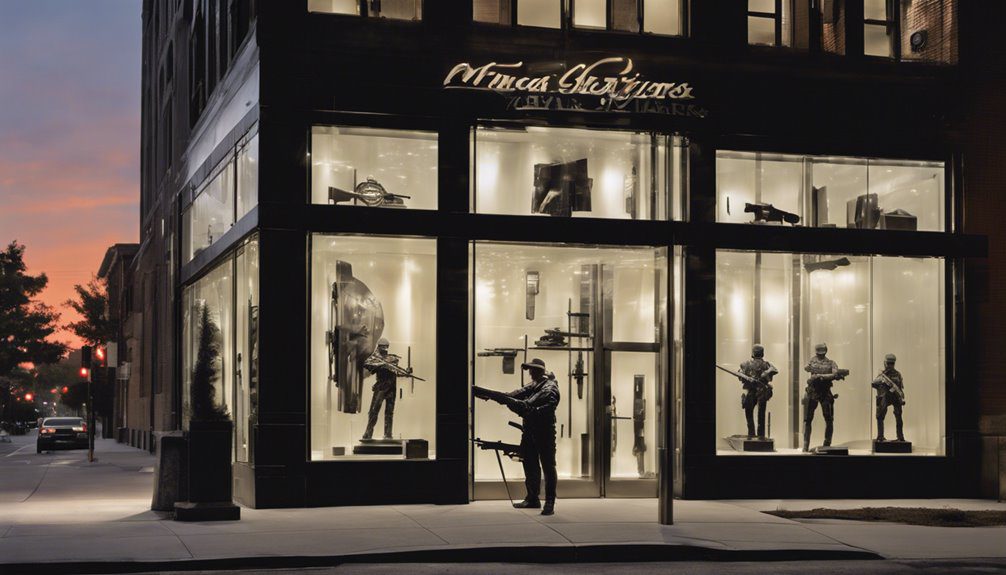
Obtaining a Retail Pistol Dealer License involves meeting specific eligibility requirements that ensure you're fit to operate in this highly regulated industry.
First and foremost, you must be at least 21 years old. This age requirement reflects the legal standards surrounding firearms transactions and ownership. You also need to be a U.S. citizen or a legal resident.
Next, you should have no felony convictions or disqualifying misdemeanors on your record, especially those related to violence or firearms. This is crucial as your background directly influences your ability to responsibly handle firearms.
Additionally, you'll need to demonstrate that you possess a permanent business location, which is compliant with local zoning laws. Your business must also have the proper federal licenses in place, including a Federal Firearms License (FFL), before applying for the retail dealer license.
Furthermore, you must be able to provide proof of a clean business reputation and financial stability.
Ultimately, fulfilling these eligibility requirements is vital for ensuring that you can legally and safely operate as a retail pistol dealer in South Carolina.
Steps to Obtain the License
Securing a Retail Pistol Dealer License involves several essential steps that guide you through the process efficiently.
First, you'll need to gather the necessary documents, including proof of your business location, identification, and any required fees. Make sure to check your local and state regulations, as these can vary.
Next, complete the application form provided by your state's regulatory agency. Be thorough in filling it out, as inaccuracies can delay your application.
Once your application is ready, submit it along with the required documents and fees to the appropriate agency.
After submission, you may have to undergo a background check. Be prepared to answer questions about your business practices and intentions. This part of the process is crucial, as it ensures you meet the necessary qualifications to operate as a dealer.
Once your application is approved, you'll receive your Retail Pistol Dealer License.
Don't forget to keep your licensing information up to date and renew it as required. Following these steps carefully will help you navigate the process and set you up for success in your new venture.
Understanding the Bond Process

Once you've secured your Retail Pistol Dealer License, understanding the bond process is vital for your business. The bond acts as a financial safety net, ensuring that you comply with legal regulations and protecting your customers.
It's essentially a contract between you, a surety company, and the state, guaranteeing that you'll adhere to all relevant laws and obligations.
To get started, you'll need to select a reputable surety company. They'll assess your creditworthiness, business history, and financial stability. This evaluation will determine your bond premium, which is a percentage of the total bond amount, typically around $10,000 in South Carolina.
Once you've completed the application and provided any required documentation, the surety company will issue your bond. You'll need to submit this bond along with your licensing application.
It's crucial to keep your bond active and renewed annually, as failing to do so can jeopardize your license and business operations. Additionally, understanding the purpose of surety bonds can help you navigate potential challenges and ensure compliance with state regulations.
Costs Associated With Licensing
When you're navigating the costs associated with obtaining a Retail Pistol Dealer License, it's essential to budget for several key expenses.
First, you'll need to consider the application fee, which can range from $100 to $500, depending on your state and local regulations. This fee is usually non-refundable, so make sure your application is complete to avoid additional costs.
Next, factor in the cost of a $10,000 surety bond, which can vary based on your creditworthiness but typically falls between $100 and $1,000 annually. Bond amounts vary by state and are influenced by several factors, including credit score and financial history.
You'll also need to bear the costs of any necessary background checks or fingerprinting, which can add another $50 to $200 to your expenses.
If you're planning to set up a storefront, include expenses for lease agreements or any renovations needed to comply with local zoning laws.
Don't forget about insurance, which is crucial for protecting your business and can run several hundred dollars a year.
Compliance and Regulatory Obligations
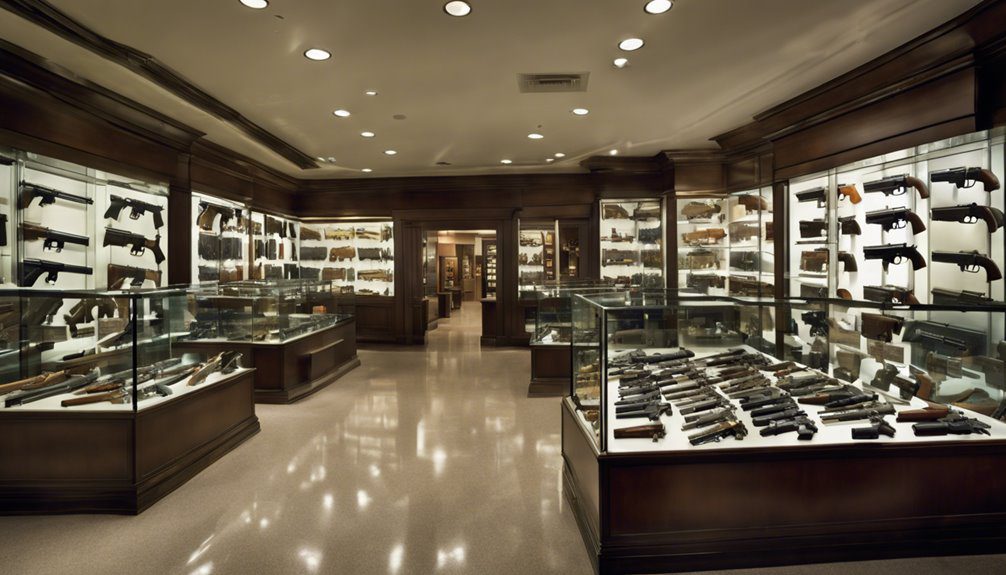
Compliance with regulatory obligations is crucial for anyone looking to operate as a Retail Pistol Dealer. You need to understand and adhere to federal, state, and local laws governing firearm sales. This includes registering with the Bureau of Alcohol, Tobacco, Firearms and Explosives (ATF) and obtaining the necessary licenses.
You'll also have to maintain accurate records of all transactions. This means documenting the sale of each firearm, including buyer information and the serial numbers of the guns sold. Such records must be readily available for inspection by law enforcement agencies.
Furthermore, you must ensure that you're selling to eligible buyers. Conduct background checks to verify that your customers meet the legal requirements to purchase firearms. Failing to do so can lead to severe penalties, including the loss of your dealer license.
Regular training and education on compliance requirements are essential, as laws can change. Staying informed will help you avoid legal issues and maintain your business's integrity.
Renewing Your Dealer License
Maintaining your Retail Pistol Dealer License isn't just about meeting initial requirements; it also involves a proactive approach to renewal. To keep your license active, it's essential to stay on top of renewal deadlines and requirements set by your state. Typically, you'll need to renew your license every few years, so mark those dates on your calendar to avoid any lapses.
Before the renewal, review your compliance record and ensure all documentation is up-to-date. This includes your $10,000 bond and any necessary insurance.
In some cases, you may need to submit a renewal application along with a fee, so check your state's specific guidelines.
You should also consider any changes in local laws or regulations that might affect your business. Staying informed can help prevent any compliance issues down the line. License and permit bonds provide a financial guarantee to protect the public and ensure compliance.
Lastly, don't forget to keep communication lines open with your local licensing authority. They can provide valuable guidance and assistance throughout the renewal process.
Resources for Aspiring Dealers
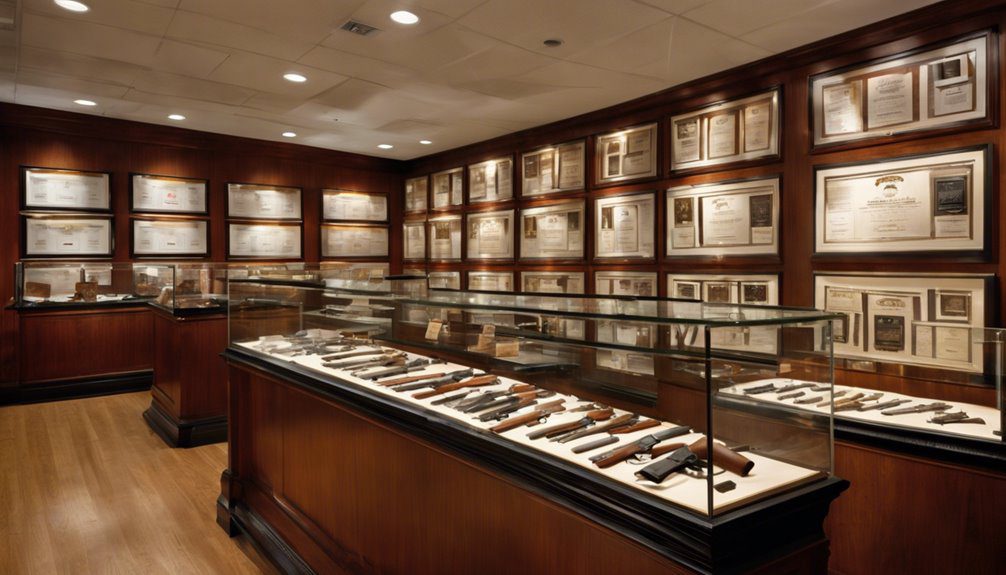
Becoming a successful retail pistol dealer requires access to the right resources and support. First, familiarize yourself with federal and state regulations governing firearm sales. The Bureau of Alcohol, Tobacco, Firearms and Explosives (ATF) website is a crucial resource, providing guidance on licensing and compliance.
Next, connect with industry associations like the National Shooting Sports Foundation (NSSF). They offer training programs, networking opportunities, and valuable industry insights. Attending local gun shows and trade fairs can also help you build relationships with suppliers and customers.
Consider investing in a good Point of Sale (POS) system that includes inventory management tailored for firearm dealers. This will streamline your operations and ensure accurate record-keeping.
Additionally, stay updated on market trends and customer preferences by subscribing to industry publications and newsletters. Engaging with online forums and social media groups can also provide support and advice from seasoned dealers.
Lastly, explore financial resources, such as loans specifically designed for firearm businesses, to help you launch and grow. With the right tools and knowledge, you'll be well on your way to establishing a successful retail pistol dealership.
Conclusion
In summary, obtaining your SC Retail Pistol Dealer License and the $10,000 bond is crucial for establishing a reputable firearm business. This bond not only protects consumers but also demonstrates your commitment to compliance with state regulations. Stay informed about eligibility requirements, licensing steps, and renewal processes to ensure your success. By taking these steps, you can build a trustworthy brand and contribute positively to your community as a responsible firearm dealer.

